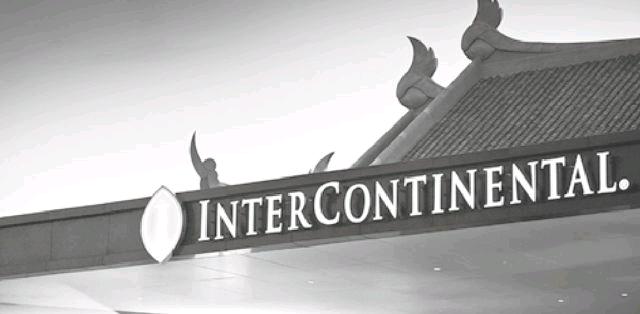Winter Is Coming for Budget Hotels
2015-03-10
After a decade of dramatic boom and expansion, Chinas budget hotels that are themed with three-star hotels and hostels seem to be waving farewell to its golden age of growth and seeing a winter freeze coming. Meanwhile, the prospect of upscale hotels is not that rosy either owing to policy restriction. Hoteliers need another outlet, which for now is the middle-priced market.
Following the path of Home Inn, Jinjiang Star and GreenTree Inn, Dongcheng Hotel Group (formerly known as City Express Hotel) lately an- nounced its intention to enter the middleend market. Board Chairman and CEO Cheng Xinhua revealed the new brand name“Yishang” and planned to have 50 chain hotels by next year and seek IPO overseas in the next three years.
Winter for the Budget Hotels
Chinas economy hotel surged rapidly in the past ten years. Investment flooded in and created a bunch of industry magnates such as Home Inn, Seven Days, Jinjiang Star, Hanting Hotel and Super 8. However, surge in the number of contenders makes the competition increasingly fierce and profit margin keep narrowing. A lot of hotels suffer loss and foresee a grim outlook.
It is generally accepted that Chinas budget hotel market started to thrive in the year of 2004 when there was still an abundant supply of hotel properties with excellent locations and affordable costs. Back then the lease term of a hotel was usually for ten years. As a consequence, most of these hotels are now up against the pressure of lease expiring and rent rising. According to data compiled by a third party institution, rent of Chinas first and second-tier cities doubled in the past ten years, and average monthly salary of hotel employees has risen from 800 yuan to 2400 yuan.
It is reported that in 2013 Chinas 2361 four-star hotels with 462800 rooms suffered a loss of 3.29 billion yuan; 5631 three-star hotels with 620700 rooms also made a loss of 2.12 billion yuan; average return on rentable rooms of four-star hotels nationwide was 207.53 yuan, down 6.25%; threestar hotels 120.42 yuan, down 5.82%.
“It suggests the supply of rooms has outstripped demand in Chinas domestic lodging market. The standardization of the industry has led to a service homogenization and forced competitors into a price war,” said Zhao Huanyan, the Chief Knowledge Officer and senior economist of Huamei Hotel Consulting.
Realizing the industry has come to a standstill, many hotel groups started to withdraw from the low-end market and try to spin off other divisions. In 2011, Huatian Hotel Group sold the 100% ownership of its subsidiary Huatian Star Hotel Management Limited Company at a price of 136 million yuan. This July, Jinling Hotel sold its loss-making budget chain “Golden Village” at a package price of 11.7 million yuan. In September, OCT Group sold its ownership of City Hostel at nearly 70 million yuan.
In 2013, Chinese government started to crack down on the misspending and corruption among civil servants and state-owned enterprise employees. Many institutions and companies lowered their business trip expenses upper limit to 400-500 yuan per night, which caused a decrease of the customer base of high-end hotels; thereby some ana- lysts predicted a recovery for budget hotel market.
However, the expected recovery didnt happen after all. Traditional threestar hotels with old facilities, inflexible services and inflated prices failed to attract more customers and raise the occupancy rate.
“Chinas burgeoning middle class brings tremendous consumption demand. Budget hotels can no longer meet their needs,” said Cheng Xinhua.
Mid-priced Hotels Prevail
Under the pressure of development freeze, middle-priced hotels become the new target of investment. Ever since a long time ago, traditional high-end and budget hotels have covered the top and bottom parts of Chinas consumer pyramid, leaving the vast market in between unattended.
Along with Chinas fast development comes surging consuming demand of the hotel market.
So far, almost all well-known hotel chains in the market have launched their own mid-tier brands. In 2010, Huazhu Hotel Group presented “Hanting All Seasons”, a new brand designed for the middle-end market. In 2013, Plateno Hotel Group which owns the 7 Days Inn announced several new middle-end brands such as Lavande Hotel, Portofino Hotel, Coffeetel and Zmax. Jinjiang Hotel Group also launched its new middle-priced boutique chain “Metropolo”. Heyi Hotel, a sub-brand under Home Inn opened for business as early as 2008.
O n t h e other hand, luxury hotels have been slumping in the past few years, especially since the government started to carry out new expense limit for officials and public servants. For instance, Beijing Municipal Government has introduced an administrative order to prohibit local fivestar hotels from being the venue for any governmental event. Owing to that order, some of Beijings five-star hotels were forced to turn to mass market. Some poorly-run high-end hotels even voluntarily gave up “stars” and transformed themselves into middle-end business hotels.
Meanwhile, international hotel giants are eyeing the Chinese middleend hotel market and trying to take a share of the spoils too. Foreign brands such as Marriott, Mercure, Novotel and Intercontinental Smart Choice Holiday Inn have already migrated into Chinas market. The competition of the middle-end market has never been so intense.
Statistics show that domestic tourists of China hit 2.96 billion in 2012. On the assumption that 15% of them need to stay overnight in hotel rooms, there will be approximately 444 million overnight visitors per year. Research shows that 25% of the overnight visitors tend to choose hotels of middlelevel accommodation. In other words, the annual demand for middle-priced hotel rooms by domestic overnight visitors sums to more than 100 million, thusly bringing huge opportunities for business practitioner.
Differentiated Strategies
Although the budget hotels transformation toward middle and high-end hotels appears unstoppable, experts still have concerns, since there are still problems of market and brand positioning.
First of all, what is a middle-end hotel? Due to Chinas unbalanced economic development in different regions, local markets have different standards about the middle-end hotels. If we simply set the price range of middle-end hotels as 400-500 yuan per room per night, visitors can actually be accommodated in higher star hotels in many Chinese cities within that range.
Secondly, as an upgraded version of the budget hotels and affordable version of luxury hotels, what kind of industry standards should middle-end hotels apply? What is the criterion for middle-level hardware facilities and services? Dai Bin, President of the China Tourism Academy, has pointed out that in spite of the significant potential in the market, there are few middle-end hotels that can really correspond to the needs of the market, and even fewer that is of market influence.
To break through the chaos of current circumstances, middle-end hotels have to seek diversification in competition. Many hotels are trying to build a customer base and enhance customer loyalty by personalizing the brand. For example, Dongcheng Hotel Group has proposed the idea of “service select”and established a core business strategy around it.
According to CEO Cheng Xinhua, the new hotel chain will reduce the facilities and service pack of traditional high-star hotels to the minimum and focus on customers basic needs of sleeping, because only in this way the prices can be cut down to a more approachable level.
Hu Zhiliang, director of Industry and Policy Research Center of China Investment Consultant, believes that comprehensive upgrading of budget hotels will be the main stream in the hotel industry in the foreseeable future. However, in the process of upgrading, the budget hotels should not pursue large scale and comprehensiveness blindly, but put more energy in accurate market positioning so as to preserve the uniqueness of each brand and accordingly win the market.
